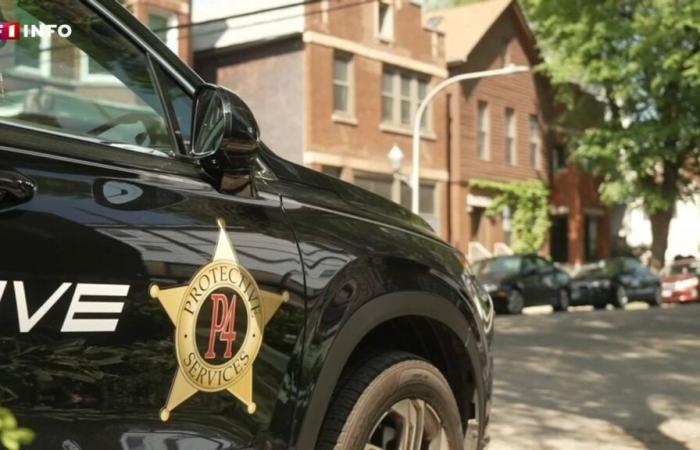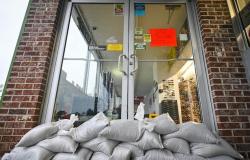
In the United States, faced with the explosion of delinquency and violence in large cities, certain neighborhoods have decided to organize themselves.
In Chicago, the city’s wealthiest residents have decided to hire private police.
In the Illinois megalopolis, crime has in fact increased by 41% in one year.
Follow the full coverage
WE 8 PM
The first thing Rick Marty does when he starts his eight-hour patrol: he turns on his lights to let the neighborhood know they can count on him. Green lights, not a flashing red and blue light. Because while Rick is retired from law enforcement, he shouldn’t be mistaken for a cop. He’s a private security guard. And yet he has the same equipment he’d find in any police vehicle: camera, radio, and even a gun on his belt.
“We have no right to make an arresthe specifies however in the report at the top of this article. Our primary function on patrol is to observe and alert. But in the event of a life-threatening situation, we are trained to intervene. That’s why we carry a weapon.”
-
Read also
“Roll the window all the way down!”: Dramatic high-speed rescue on a US highway
Because evenings can be particularly eventful for security guards like Rick Marty. A few weeks ago, three armed men tried to steal the car of a young woman in the neighborhood, without success. The victim then called the patrol on duty. The security guard found the attackers and alerted the police, without intervening. Because it is the police who will come to arrest the criminals. “We are not here to replace the police, but to help them”Rick assures.
Security: a privilege of the richest?
These patrols that circulate in the affluent neighborhoods of Chicago were set up at the request of the residents. Cost of the operation: 200,000 euros, or 100 euros per month and per household for those who agree to participate. A justified sum, some residents believe, given the 41% increase in crime in one year in the city, a situation that cost the outgoing mayor her re-election. “They are very professional, very respectful, the neighborhood did well to invest in this,” rejoices a resident.
But not everyone is required to contribute and the initiative is divisive. “Apart from running stop signs, I don’t really see what they’re for, and we already pay taxes for the police,” one resident gets carried away, while another claims not to have “Never felt unsafe in this neighborhood. People are overdoing it.”
The company in charge of these agents assures us that crime has fallen in the area and that nine other of the richest districts in the megalopolis have already hired its services. “It’s mainly linked to the city’s lack of police resources,” explains Stefano Vitale, vice president of the P4 company. The company uses police statistical data to set up its patrols, with a graph that shows crime trends in neighborhoods.
But there are many critics of these private patrols. Many fear that these agents will reinforce the inequalities between the most affluent and the most disadvantaged neighborhoods. And that security will become the privilege of the richest.





